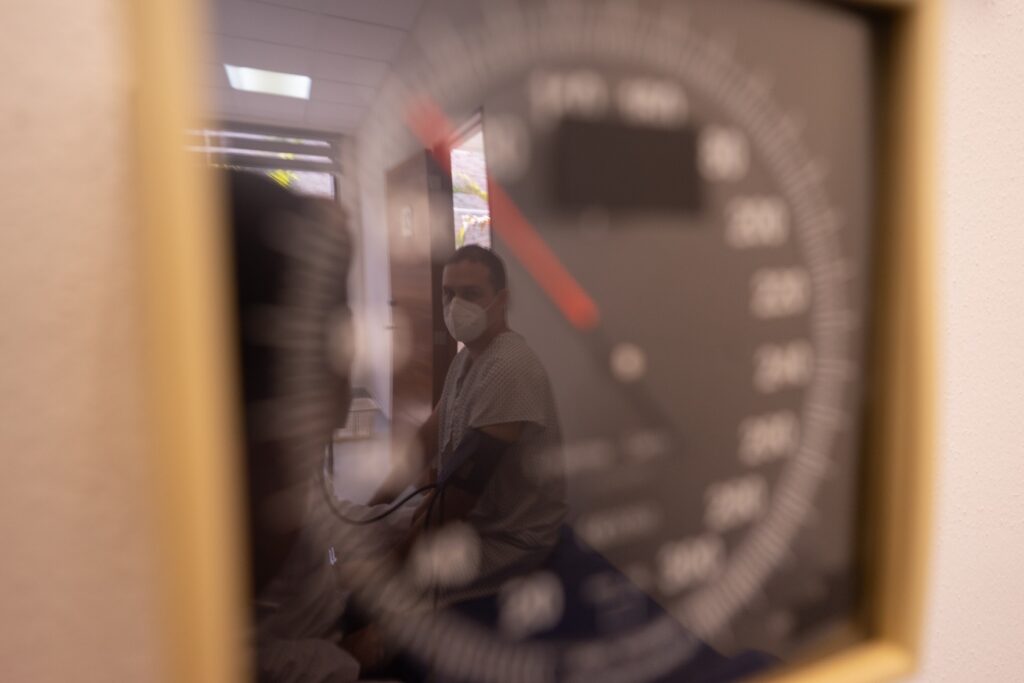High blood pressure, also known as hypertension, is a common health condition that affects a significant portion of the global population. This condition occurs when the force of blood against the walls of the arteries is consistently too high, leading to potential damage to the arteries and organs over time. While hypertension can cause significant health problems, it is often asymptomatic in the early stages, leading many people to wonder how long they can have high blood pressure before it causes damage.
The Timeline of High Blood Pressure Damage
High blood pressure can cause damage to the arteries and organs over time, but the timeline for this damage can vary depending on a variety of factors. These factors include the severity and duration of hypertension, age, genetics, lifestyle behaviors, and the presence of other health conditions.
In general, the longer high blood pressure goes uncontrolled, the greater the risk of damage to the arteries and organs. Studies have shown that damage to the heart and blood vessels can begin to occur in as little as two years of untreated high blood pressure. However, this timeline can vary significantly depending on individual factors.
For example, younger individuals with hypertension may be at greater risk of developing organ damage due to the longer duration of hypertension over their lifetime. Additionally, individuals with other health conditions such as diabetes or chronic kidney disease may experience more rapid damage to their organs due to the increased strain on their bodies.
The Severity of High Blood Pressure
The severity of high blood pressure can also impact the timeline for damage to occur. Blood pressure is measured in two numbers: systolic pressure (the top number) and diastolic pressure (the bottom number). A blood pressure reading of 120/80 mmHg or below is considered normal, while readings above this range are considered high.
Individuals with mild hypertension (blood pressure between 130-139/80-89 mmHg) may not experience significant damage to their arteries or organs for several years or even decades, especially if they adopt healthy lifestyle behaviors and seek regular medical care. However, individuals with severe hypertension (blood pressure above 180/120 mmHg) may experience rapid damage to their organs, including the heart, brain, and kidneys.
Age and Genetics
Age and genetics can also impact the timeline for high blood pressure damage. As individuals age, their arteries become less flexible and more prone to damage from high blood pressure. This can increase the risk of heart disease, stroke, and other health problems. Additionally, genetics can play a role in the development of high blood pressure and related health problems. Certain genetic factors can increase the risk of hypertension and may contribute to a shorter timeline for damage to occur. However, lifestyle behaviors such as diet and physical activity can also impact genetic risk factors, highlighting the importance of healthy lifestyle choices.
Lifestyle Behaviors
Lifestyle behaviors, including diet, physical activity, and stress management, can also impact the timeline for high blood pressure damage. Adopting healthy lifestyle behaviors can help to reduce blood pressure levels and improve overall health outcomes, potentially delaying or preventing damage to the arteries and organs.
For example, a diet rich in fruits, vegetables, whole grains, lean protein, and low-fat dairy products can help to lower blood pressure levels and reduce the risk of heart disease and stroke. Regular physical activity can also help to reduce blood pressure levels and improve overall health outcomes. Stress management techniques such as meditation, deep breathing, and yoga can also help to lower blood pressure levels and reduce the risk of hypertension-related health problems. Taking a walk can also work to lower blood pressure. It is important to focus on what we can control when it comes to our health.
Other Health Conditions
The presence of other health conditions can also impact the timeline for high blood pressure damage. Chronic conditions such as diabetes, chronic kidney disease, and obstructive sleep apnea can all increase the risk of hypertension-related health problems and may require additional management and treatment. Additionally, the use of certain medications or substances such as tobacco should be discussed with a doctor.
The Importance of Early Detection and Treatment
While the timeline for high blood pressure damage can vary significantly based on individual factors, the importance of early detection and treatment cannot be overstated. Regular blood pressure monitoring and medical care can help to identify high blood pressure early, allowing for timely interventions to prevent or delay the onset of organ damage.
Treatment for high blood pressure may include lifestyle modifications such as diet and physical activity, as well as medications to lower blood pressure levels. It is important to work with a healthcare provider to develop a personalized treatment plan based on individual health needs and risk factors.
In addition to medical treatment, lifestyle behaviors such as stress management and healthy habits can also play a significant role in preventing or delaying high blood pressure damage. This highlights the importance of maintaining a healthy lifestyle throughout life to reduce the risk of developing high blood pressure and related health problems.
Conclusion
High blood pressure is a common health condition that can lead to significant organ damage if left untreated. The timeline for high blood pressure damage can vary based on individual factors such as the severity and duration of hypertension, age, genetics, lifestyle behaviors, and the presence of other health conditions.
While the timeline for damage can be difficult to predict, regular blood pressure monitoring and medical care are crucial for early detection and treatment of hypertension. Adopting healthy lifestyle behaviors and working with a healthcare provider to develop a personalized treatment plan can also help to prevent or delay high blood pressure damage.
Overall, the best way to prevent or delay high blood pressure damage is through a combination of medical care, healthy lifestyle behaviors, and regular blood pressure monitoring. By taking steps to manage blood pressure levels and reduce the risk of hypertension-related health problems, individuals can improve their overall health outcomes and quality of life.


